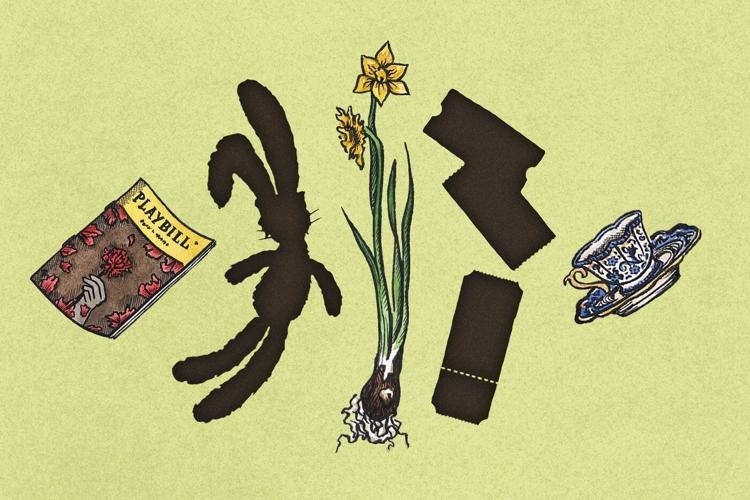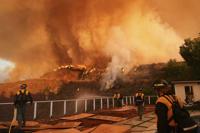Losing important sentimental belongings — those items that represented who you are — can be traumatic for those who go through disasters that destroy homes. Some tips on how to get through it, emotionally and practically:
Soothe yourself, and be patient
Grief can be hard on the body, says Mary-Frances O’Connor, a psychology professor at the University of Arizona and author of “The Grieving Body: How the Stress of Loss Can Be an Opportunity for Healing.”
Move. Get good sleep, but accept that you might have insomnia. Establish new routines to replace the old ones.
“Our body is reacting to not having habits, to uncertainty,” O'Connor says. “Our body also takes time to absorb the blow.”
Recovering from loss requires “understanding the impact that it’s having,” says O’Connor. Have patience, she says.
Document the memories, let the material things go
“You've got to write down the stories. Document the stories,” says Matt Paxton, a decluttering expert and author of “Keep the Memories, Lose the Stuff.”
Pass on what those lost treasures represented. Capture their meaning for yourself and future generations. The actual things themselves are, in the end, just things.
“The old adage that you can’t take it with you is true,” he says. “It's not the items, it's the stories they tell.”
Preserve and document the keepsakes you still have
Use technology: Photograph your sentimental belongings, scan and digitize. Start with the top five most important things, say, and top 20 photographs that matter, Paxton suggests. Use apps that help catalog things and documents. (Paxton's company is , and he recommends , and the Artifcts app, among others.)
Offline, label things so the next generation will know their sentimental value.
In many cases, friends and acquaintances will have photos and meaningful items to share.
Be open to help from friends and community
Friends and acquaintances might want to pitch in on recovery or send things. Let them. Share stories and talk.
Disasters and trauma often affect whole families, communities, “even a whole state and country,” says O'Connor. So it helps to remember “that our shared response builds meaning and memorializes, and it's often by turning to others that we find the strength to go on.”
Look forward to a meaningful future
Disaster and recovery will create new precious memories, and new photo albums full of photos. “Choose to keep living and creating new memories and recording old memories,” says Paxton.
Besides mourning the past, O'Connor says, another aspect of healing "is restoring a meaningful life: Who am I now, in this new chapter of my life? How does it change my interactions?”
“Restoring a meaningful life is also stressful, but what we see in research is that being able to move back and forth between coping with loss and coping with restoration is a sign of mental health," she says. "Accepting that both are part of the process.”
















































